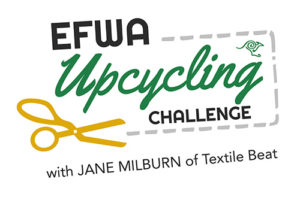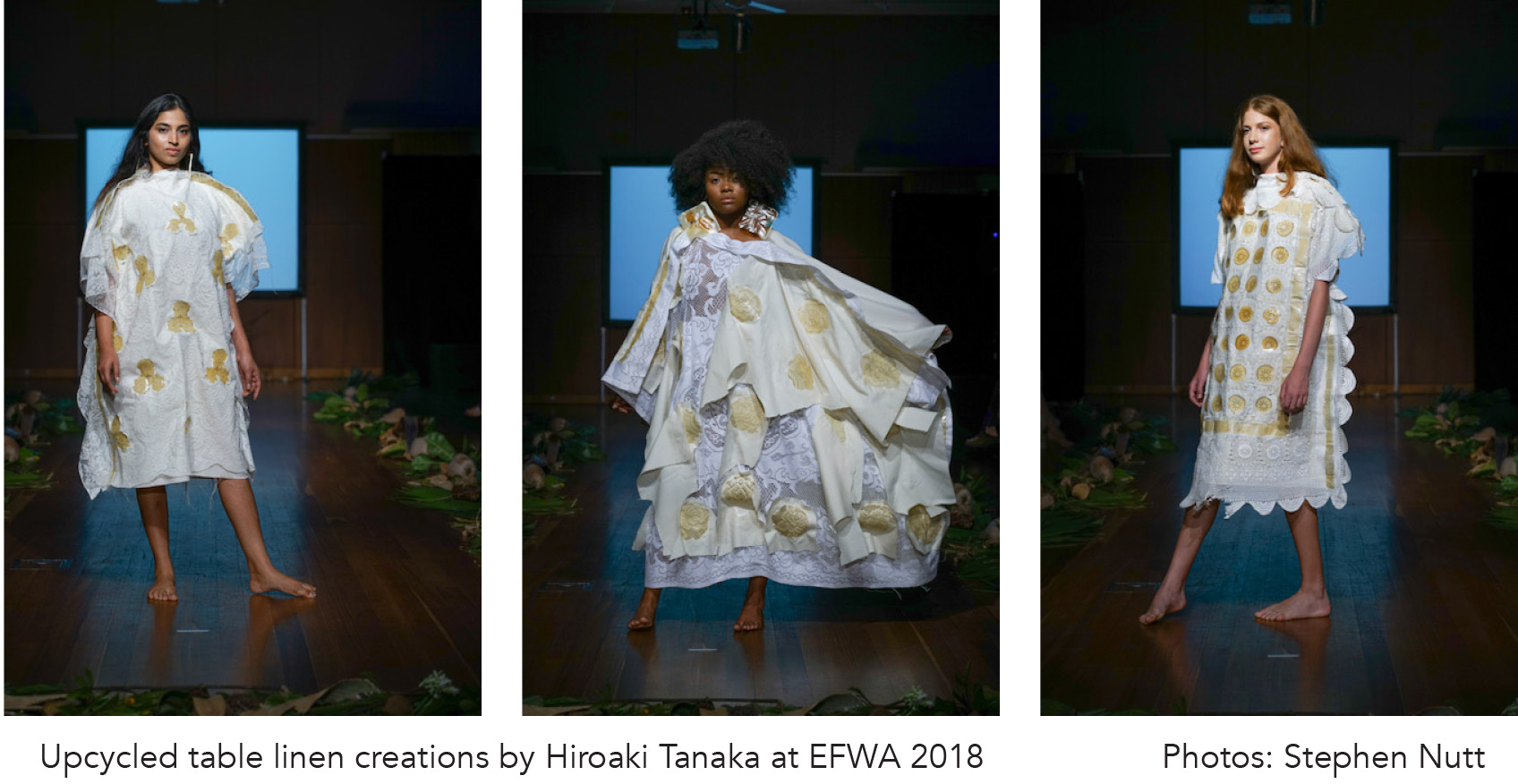Due to the Omicron outbreak, Eco Fashion Week Australia and the associated Upcycling Challenge (outlined in the post below) has been postponed until 2023.
Garments with meaning and story fit for A Closet of the Anthropocene will form the Upcycling Challenge collection at the upcoming Eco Fashion Week Australia in 2022.
 Participating designers are asked to choose a ‘’hero’’ textile lying dormant in its current form and build on that to create a uniquely meaningful garment with a great story to tell about how it came to be in the world.
Participating designers are asked to choose a ‘’hero’’ textile lying dormant in its current form and build on that to create a uniquely meaningful garment with a great story to tell about how it came to be in the world.
The hero textile might be Granny’s embroidered tablecloth, Mum’s outdated wedding dress, Dad’s old uniform, a favourite childhood dress or jumper, something painted in art school, or a beautiful but damaged treasure discovered in an op shop. This textile can be repurposed along with other materials of choice into a storyful creation with the hero at heart.
The EFWA Upcycling Challenge coordinator is Jane Milburn who has been personally upcycling since 2013 as a way to spark action in response to fashion excess and textile waste. Her upcycled wardrobe includes history skirts, denim tunics and geometric dresses made from dormant materials.
 “I am thrilled to have carriage of the Upcycling Challenge, following on from the wonderful standard set by Marilyn R Wilson in previous years when the challenge was for designers to create with business shirts,” Jane said.
“I am thrilled to have carriage of the Upcycling Challenge, following on from the wonderful standard set by Marilyn R Wilson in previous years when the challenge was for designers to create with business shirts,” Jane said.
“This time we are looking to tell the story of how designers can transform the energy contained in a treasured but languishing piece of material into a contemporary form that speaks to our need for sustainable, meaningful and comfortable everyday wear in the post-COVID era.’’
In early 2022, Eco Fashion Week Australia will call for expressions of interest from designers interested in activating dormant textile resources that still hold value. The design brief is for each designer to create one storyful garment suitable for everyday wear and the garments will together become the Upcycling Challenge collection in EFWA runway shows and art gallery exhibitions.
While the design brief is broad, the materials brief is for outfits to be predominantly made from natural fibres (such as linen, cotton, wool and silk) rather than synthetic fibres (such as polyester, nylon, acrylic) derived from fossil fuels.
Jane said the hero textile and accompanying resources are wide open for intersectional play: table linen mashed with business shirts, bed linen with denim, knits teamed with high-vis, overdyeing and block printing, or whatever takes the designers’ fancy.
By reusing existing natural resources and creating garments that have attachment value, the Upcycled Collection will be fit-for-purpose in A Closet of the Anthropocene (the current geological age shaped by human impacts) as fashionability is being redefined due to climate change.
Eco Fashion Week Australia will run for three months from November 2022 across Western Australia and feature more than 50 artists and designers exploring subjects and themes related to climate change. There is a small Upcycling Challenge participation fee of $300 to support the showing of garments on the runway and in galleries. Designers may offer their garments for sale, as a way of recouping this fee. If the piece is unsold, the garment will be returned when the event is over.
Stay tuned for our call for Expressions of Interest in February 2022. Meanwhile, if you have questions please connect with Jane Milburn via email on jane@textilebeat.com